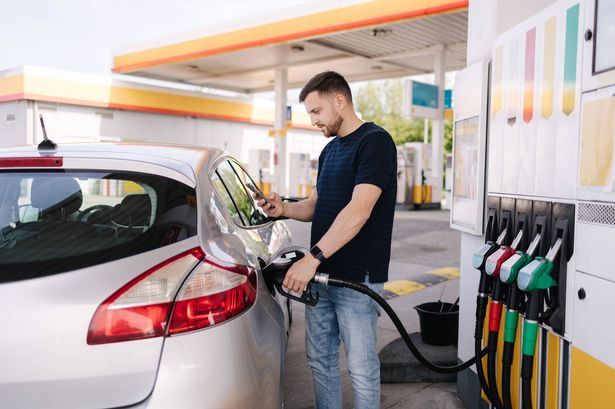World
Discover Crucial Petrol Station Rules Every Driver Must Know

Motorists may relish the freedom of driving, but regular fuel refills are essential. Understanding the proper protocols at petrol stations can enhance safety and ensure a smooth experience for everyone involved. A recent TikTok video by automotive expert known as Capturing Cars highlights five lesser-known rules that drivers should follow when refuelling their vehicles in the UK.
Key Petrol Station Protocols for Safety
One surprising guideline shared in the video is that drivers should not return to their vehicle while refuelling. The expert revealed that this is primarily due to concerns over static electricity, which could potentially ignite petrol vapours. He stated, “You are not allowed to get in or out of your car in the middle of refuelling because of static build-up and the potential, albeit pretty limited, that you could cause a dangerous spark.” This rule extends to passengers as well, as their movements could also pose similar risks.
According to Driving News, a publication focused on motoring and transport, it is advisable for passengers to exit the vehicle during refuelling for safety reasons. This aligns with guidelines from the National Traffic Safety Institute, which emphasize the importance of safety in these environments.
Another critical point discussed is the prohibition of mobile phone usage while filling up. The expert indicated that using a phone can be distracting and may also produce a spark that could ignite vapours present at the station. He explained, “When petrol ignites, its volatilised vapours mix with air, and an ignition source can trigger a sudden, rapid combustion or explosion.”
Additional Regulations Drivers Should Consider
The video also outlined the importance of refraining from smoking or using lighters at petrol stations. The expert noted that “petrol vapours in the air and flames don’t mix well,” highlighting the risks associated with these activities. E-cigarettes, similar to mobile phones, could malfunction and create a potential spark.
Turning off the engine while refuelling is another crucial rule. According to Rule 123 of the Highway Code, drivers must switch off their engines when stationary to reduce emissions. Local authorities may impose fines for non-compliance. The expert pointed out that sparks can originate from the vehicle’s engine, electrical systems, or even static electricity, all of which could lead to dangerous situations.
Lastly, the expert cautioned against using inappropriate containers for fuel storage, stating that only approved fuel cans should be used. He recounted an anecdote from his previous experience at a car dealership, where he witnessed someone attempting to fill an ice cream tub with petrol, underscoring the absurdity and danger of such actions.
As a final note, the motoring expert mentioned that only individuals aged 16 and over are permitted to operate fuel pumps, reinforcing the need for responsible behaviour at petrol stations. By adhering to these guidelines, drivers can contribute to a safer environment for everyone.
-

 Entertainment3 months ago
Entertainment3 months agoAnn Ming Reflects on ITV’s ‘I Fought the Law’ Drama
-

 Entertainment4 months ago
Entertainment4 months agoKate Garraway Sells £2 Million Home Amid Financial Struggles
-

 Health3 months ago
Health3 months agoKatie Price Faces New Health Concerns After Cancer Symptoms Resurface
-

 Entertainment3 months ago
Entertainment3 months agoCoronation Street’s Carl Webster Faces Trouble with New Affairs
-

 Entertainment3 months ago
Entertainment3 months agoWhere is Tinder Swindler Simon Leviev? Latest Updates Revealed
-

 World2 weeks ago
World2 weeks agoBailey Announces Heartbreaking Split from Rebecca After Reunion
-

 Entertainment2 weeks ago
Entertainment2 weeks agoCoronation Street Fans React as Todd Faces Heartbreaking Choice
-

 Entertainment4 months ago
Entertainment4 months agoMarkiplier Addresses AI Controversy During Livestream Response
-

 Science1 month ago
Science1 month agoBrian Cox Addresses Claims of Alien Probe in 3I/ATLAS Discovery
-

 Health4 months ago
Health4 months agoCarol Vorderman Reflects on Health Scare and Family Support
-

 Entertainment4 months ago
Entertainment4 months agoKim Cattrall Posts Cryptic Message After HBO’s Sequel Cancellation
-

 Entertainment3 months ago
Entertainment3 months agoOlivia Attwood Opens Up About Fallout with Former Best Friend





















